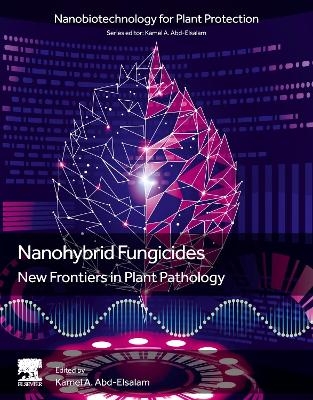
Nanohybrid Fungicides
Elsevier - Health Sciences Division (Verlag)
978-0-443-23950-2 (ISBN)
Plant scientists, plant pathologists, agriculture and food scientists, and professionals and students working in related fields will all benefit from this timely resource.
Prof. Kamel A. Abd-Elsalam, Ph.D., is currently a research professor at the Plant Pathology Research Institute, Agricultural Research Center, Giza. Kamel earned his Ph.D. in Molecular Plant Pathology from Christian Alberchts University of Kiel (Germany) and Suez Canal University (Egypt). Dr. Kamel’s research interests include developing, improving, and deploying plant biosecurity diagnostic tools; understanding and exploiting fungal pathogen genomes; and developing eco-friendly hybrid nanomaterials for controlling toxicogenic fungi, plant diseases, and agroecosystems applications. He published 20 books related to nano-biotechnology applications in agriculture and plant protection. Since 2019, he has served as the Editor-in-Chief of the Elsevier book series “Nanobiotechnology for Plant Protection. He also serves as the Series Editor of the Elsevier book series “Genome Modified Plants and Microbes in Food and Agriculture.
Part 1 What is Hybrid Nanofungicides?
1. Introduction chapter: what is Hybrid Nanofungicides?
2. Current Topics of Nanotechnological Approach in Agriculture: A case study on Nano-based fungicides
3. Chitosan-based Agronanofungicides: A Sustainable Alternative in Fungal Plant Diseases Management
4. Gum nanocomposites for postharvest fungal disease control in fruits
5. Nanoencapsulation applications in fungicides
6. Antifungal potential of Nano and Micro-encapsulated phytochemical compounds and their impact on plant heath
7. The Antagonistic Yeasts: as novel and safe biological agents, nano/biofungicides for controlling fungal plant pathogens
8. Fungal metabolites as novel plant pathogen antagonists
9. Secondary metabolites from Trichoderma for effective plant pathogen control
10. Fusarium mycotoxins: potential as biocontrol agents
Part 2 General applications. commercialization and remediation
11. Applications of nano fungicides in plant diseases control
12. Nanoarchitectures for fungal diseases management in Agri-Food sector
13. Nanobiofungicides for the reduction of mycotoxin contamination in food and feed
14. Nano-Biopesticides: Significance, Preparation Technologies, Safety Aspects and Commercialization for Sustainable Agriculture
15. Nano-Agrochemicals Start-up Provides Sustainable Crop Protection Options
16. Patent Landscape in Biofungicides, Nanofungicides, and Nano-Biofungicides
17. Microbial bio-remediation of fungicides
| Erscheinungsdatum | 03.11.2023 |
|---|---|
| Reihe/Serie | Nanobiotechnology for Plant Protection |
| Verlagsort | Philadelphia |
| Sprache | englisch |
| Maße | 191 x 235 mm |
| Gewicht | 450 g |
| Themenwelt | Naturwissenschaften ► Biologie ► Botanik |
| ISBN-10 | 0-443-23950-9 / 0443239509 |
| ISBN-13 | 978-0-443-23950-2 / 9780443239502 |
| Zustand | Neuware |
| Informationen gemäß Produktsicherheitsverordnung (GPSR) | |
| Haben Sie eine Frage zum Produkt? |
aus dem Bereich


